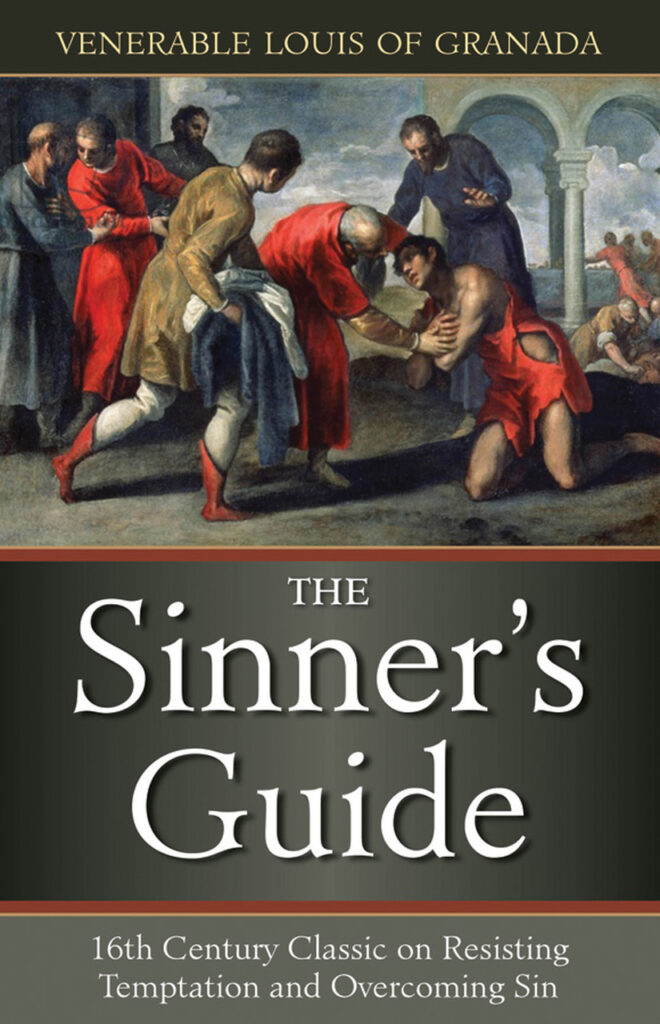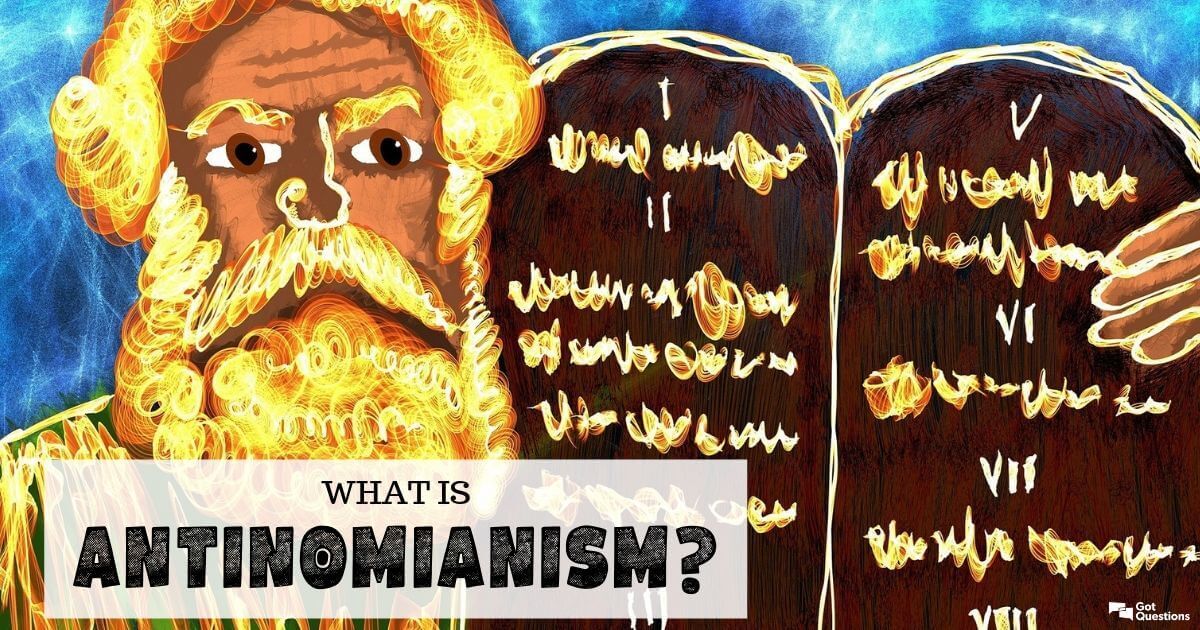
The First Council of Orleans (511 AD) records some pious Christian congregations in the earliest ages of the Church, especially the clergy, began to fast 70 days before Easter, on this Sunday, which was therefore called “Septuagesima”—the 70th day. The same is the case with the Sundays following, which are called Sexagesima, Quinquagesima, Quadragesima, because some Christians commenced to fast 60 days, others 50, others 40 days before Easter, until finally, to make it properly uniform, Popes Gregory and Gelasius arranged that all Christians should fast 40 days before Easter, commencing with Ash Wednesday.

-by Michael P. Foley
“When we go to Mass, be it in the new form or the old, we generally react to what is immediately transpiring before us, be it for the better or for the worse. We respond to the reverence or irreverence, piety or impiety, beauty or ugliness of the words and deeds we see and hear. These reactions are what remain fixed in our memories and go on to inform our liturgical opinions.
Harder to discern is the effect that a calendar has on our souls, since not every feast or Sunday comes with vivid memories in the making. A case in point is the liturgical season of pre-Lent or Septuagesima, an easily overlooked interlude between the Time after Epiphany and Lent. While the liturgies of Septuagesima are fairly low key, the impact that this small season has had on individuals and even on Western civilization is entirely disproportionate to its size. Septuagesima consists of three of some of the most interesting and influential weeks of the liturgical year.
Pre-Lent
Septuagesimatide, or pre-Lent, is the name given to the three consecutive Sundays preceding Ash Wednesday. It is named after the first of these, Septuagesima Sunday, which occurs roughly seventy days before Easter (septuagesima is Latin for “seventieth”). Sexagesima (“sixtieth”) Sunday comes next, followed by Quinquagesima (“fiftieth”) Sunday on the Sunday before Ash Wednesday. In order to effect a gradual transition between the joy of Christmastide and the stringency of Lent, the season of Septuagesima takes on some of the sobriety of the latter but without its harshness. In the Roman Breviary, the penitential circuit of psalms is used (“Lauds II”), and at Mass the Gloria in excelsis is suppressed and the Gradual replaced with a Tract. Flowers on the altar are forbidden, and violet is the liturgical color of the vestments.
Each Sunday of Septuagesimatide also focuses on a different Old Testament figure as a way of leading us up to the Paschal mystery of Good Friday and Easter. Septuagesima Sunday—and this is particularly obvious in the Breviary—recalls Adam, Sexagesima Sunday Noah, and Quinquagesima Sunday Abraham. (This pattern is continued into Lent: the Second Sunday of Lent recalls Jacob, the Third Sunday Joseph, and the Fourth Sunday Moses.) The purpose of this instruction is to help the faithful see the reasons for the scandal of the Cross, the culmination of Lent. The Matin readings on Adam give us the doctrine of original sin, the passages on the Flood highlight the wickedness of mankind, and the sacrifices of Abraham and Melchisedech foreshadow the sacrifice of Christ on the Cross.
The Sundays of Septuagesima were also shaped by a series of calamities besieging the city of Rome in the sixth century. The theme of misery and desolation in the Introit of Septuagesima Sunday, for instance, comes from these troubled times. Such historical influences on the liturgical year are an excellent example of what Pope Benedict XVI meant when he referred to the Extraordinary Form as bearing “the whole weight of history within itself, and yet, at the same time, [being] much more than the product of human history.”[1] In any event, Septuagesima was a well-established liturgical season in the Roman rite by 541 A.D.
Laying to Rest the Alleluia
Perhaps the most peculiar mark of Septuagesima’s liturgies is the suppression of the word “Alleluia,” which in the Novus Ordo does not occur until Ash Wednesday. Why deprive ourselves of this glorious word for an extra two and a half weeks, especially when it is so powerful? St. Paul of the Cross, for instance, advised members of his order to cry out “Alleluia” when assaulted by the devil, for “the devil is afraid of the Alleluia; it is a word that comes from Paradise.”[2]
St. Paul’s reasoning about Paradise gives us a clue into the answer we seek. “Alleluia,” which in Hebrew means “Praise be to the Lord,” is traditionally known as the “song of the Lord.” It is what St. John heard in Heaven during his vision of the Apocalypse. It is the joyous cry of those who are truly home.
But Septuagesima and Lent are periods not of homecoming but of pilgrimage and exile. Indeed, just as the forty days of Lent commemorate the forty years of the Hebrews wandering in the wilderness and the forty days of Jesus fasting in the desert, Septuagesima recalls the roughly seventy years of the Babylonian Exile (605-538 BC), that period, second in importance only to the Exodus out of Egypt, when the people of Judah were deported to Babylon.[3] As the haunting Psalm 136(137) attests, God’s Chosen People did not deem it fit to sing their joyous songs on foreign soil:
Upon the rivers of Babylon, there we sat and wept, when we remembered Sion. On the willows in the midst thereof we hung up our [musical] instruments. For there, they that led us into captivity required of us the words of songs. And they that carried us away, said: “Sing ye to us a hymn of the songs of Sion.” How shall we sing the song of the Lord in a strange land? If I forget thee, O Jerusalem, let my right hand be forgotten. Let my tongue cleave to my jaws, if I do not remember thee (verses 1-6).
The Jews would not sing their native song of joy during their exile, and neither do Catholics during theirs. As Bishop William Durandus (1237-1296) puts it: “We part from the Alleluia as from a beloved friend, whom we embrace many times and kiss on mouth, head, and hand, before we leave him.”[4] The jubilant “Alleluia” is thus laid to rest for seventy days in the traditional Roman rite until it rises again in the Easter Vigil, and in so doing Catholics recapitulate for their spiritual benefit a cardinal moment in sacred history.
And when I say “laid to rest,” I mean that literally. Perhaps the most charming para-liturgical custom to come from Septuagesima is the depositio, or setting aside, of the Alleluia. On the Saturday afternoon before Septuagesima Sunday, medieval communities would stage an elaborate procession with a plaque or banner, often in the shape of a coffin, bearing the word “Alleluia.” The coffin would then be solemnly buried somewhere on church grounds. In parts of France, a straw man inscribed with the word “Alleluia” in gold letters was burned in effigy in the churchyard! Thanks to the liturgical movement of the 20th century, several of these customs were revived by some American parishes prior to the Second Vatican Council.
A standard part of these sacred send-offs was the singing of a song entitled Alleluia, Dulce Carmen, which artfully links the suppression of the Alleluia with the Babylonian Exile and Psalm 136. Here is J.M. Neale’s translation of the tenth-century hymn:

Alleluia! song of gladness,
Voice of joy that cannot die;
Alleluia is the anthem
Ever dear to choirs on high;
In the house of God abiding
Thus they sing eternally.
Alleluia thou resoundest,
True Jerusalem and free;
Alleluia joyful mother,
All thy children sing with thee;
But by Babylon’s sad waters
Mourning exiles now are we.
Alleluia cannot always
Be our song while here below;
Alleluia our transgressions
Make us for a while forego;
For the solemn time is coming
When our tears for sin must flow.
Therefore in our hymns we pray Thee,
Grant us blessed Trinity,
At the last to keep Thine Easter
In our home beyond the sky;
There to Thee for ever singing
Alleluia joyfully.
As the lyrics make clear, Septuagesima can teach us many valuable lessons: that Lent should not be begun abruptly or thoughtlessly but preceded by a period of adjustment; that uttering sacred words is a privilege which should not be taken for granted; that sin puts us in exile from our True Home; and that the Old Testament, with its many significant events, is perpetually relevant to the lives of Christians. Lastly, suppressing the Alleluia seventy days before Easter, and singling this fact out in a special way, heightens our joy when Alleluia triumphantly returns to our lips with the Risen Lord on Easter Sunday.
Sexagesima and Quinquagesima
The second Sunday of Septuagesimatide, Sexagesima, continues to sound the exilic note of Babylon, but with a touch of joy. Both the Collect and the Epistle commemorate the apostolate of St. Paul, the feast of whose conversion on January 25 occurs around this time.[5] Quinquagesima, on the other hand, is preoccupied with the impending Great Fast of Lent. Its Epistle from 1 Corinthians 13 on charity is the perfect preface to a season of mortification and almsgiving, for without charity, these noble acts profit us nothing (1 Cor. 13:3). Indeed, all of Septuagesimatide is an ideal primer on how to approach the purgative period of Lent in the right spirit.
Septuagesima season also marks the time when the faithful begin to fast voluntarily, in anticipation of the mandatory fast of Lent. As early as 465 A.D., St. Maximus, Bishop of Turin, was recommending a fast of devotion before Lent. In the Byzantine rite, the faithful would begin abstaining from meat on the penultimate Sunday before Lent and from dairy products on the Sunday immediately before Lent: hence the Byzantine name for Sexagesima is “Meatfare” Sunday and their name for Quinquagesima “Cheesefare” Sunday.[6] In the Roman rite, the Sunday to begin abstaining from meat was Quinquagesima, and so it also came to be known as Dominica Carnevala, carnevala coming from the Latin for “removal” (levare) of “meat” (caro/carnis). It is from this name that our word “carnival” originates.
And Septuagesimatide is not just behind the word: it is also behind the activity. Prior to the age of refrigeration, Christians needed to get rid of all the foods they would not be allowed to consume during Lent, which centuries ago was quite a long list; as we mentioned above, not only flesh meat but all dairy products were forbidden. And the closer Lent approached, the more urgently they needed to be consumed. Ironically, the pre-Lenten excesses and glittering pageantry we associate with Mardi Gras in New Orleans or the carnevales in Brazil and Venice, Italy can be traced to the voluntary increase of pious asceticism.
These sybaritic celebrations, in turn, have had a notable impact on Western culture. “Carnival music,” which is a colorful combination of Spanish, Portuguese, Native American, African, and even Chinese musical strains, is generally associated with Trinidad and Barbados, as well as other parts of the Caribbean and Brazil. Though it varies from country to country, Carnival music has a common origin in bidding a fond farewell to fun before the forty-day fast of Lent. And it has gone on to shape other genres of music, such as Latin jazz, the Conga and Conjunto, and the Samba.[7]

Glazed pączki, still very popular in Chicago, on the Tuesday before Ash Wednesday, given its substantial Polish immigrant population, please click on the image for greater detail
Septuagesima Foods
Pre-Lenten observances also led to the invention or promotion of several food dishes. There are many culinary candidates worthy of mention. Where would Cajun cooking be without Mardi Gras, or “Fat Tuesday”? Northern England traditionally observes Collop Monday two days before Ash Wednesday (a collop is made of sliced meat and eggs fried in butter), while the rest of the country enjoys Shrove Tuesday pancakes the day before Ash Wednesday. In the U.S. before Vatican II, pancake breakfasts sponsored by American parishes on Quinquagesima Sunday were not uncommon. Thanks to its Polish immigrants, America is also able to hear its arteries harden each year with pączki, a rich pastry similar to a jelly donut that is traditionally eaten during Septuagesimatide. Pączki (pronounced “paunch-key”) is a particularly interesting food because it has a vocal and zealous group of devotees, including its own lobby, the National Pączki Promotional Board.[8]
Regardless of their country of origin, all of these foods are the product of the same basic logic, to make good use of all perishable comestibles in one’s home before the beginning of Lent.
Shrovetide
Not all Christian customs of Septuagesima, however, revel in merriment and feasting. While the Latin countries had Carnival, the countries of northern Europe had Shrovetide. The verb “to shrive” is old English for a priest’s hearing confession; hence, Shrovetide was a time for the faithful to go to confession and be “shriven” in preparation for Lent. While this period originally encompassed the entire week preceding Lent, it is more common to hear reference to Shrove Sunday, Monday, and Tuesday, the three days prior to Ash Wednesday. Needless to say, this remains an excellent way to prepare for Lent.
Of course, not even the sternest of northern believers could resist every impulse to blow off a little steam. While “to shrive” might refer to sacramental absolution, the Oxford English Dictionary defines “to shrove” as “to keep Shrove-tide; to make merry.”[9] Large sporting events were popular during Shrovetide (according to legend, the world’s first soccer match took place on a Shrove Tuesday between the Britons and the Romans), and in Ireland getting married during Shrovetide was considered good luck, perhaps because weddings during Lent were forbidden.
As for the southern countries, not everyone was pleased with the rising tide of carnival celebrations that began in the fourteenth century. In 1747 Pope Benedict XIV issued the aptly named Super Bacchanalibus in which a plenary indulgence was granted to those who participated in the “Forty Hours of Carnival.” This devotion, which was held in those areas prone to indulgence of a different kind, consisted of Exposition and Benediction on Shrove Monday and Tuesday. The purpose of the devotion was to draw the faithful away from “dangerous occasions of sin” and to atone for excesses committed.[10]
Modern Times
Septuagesima was dropped from the calendar in 1970, replaced by “Ordinary Time.” According to Fr. Pierre Jounel, a professor of liturgy at the Catholic Institute of Paris and one of the architects of the new calendar, it was excised because “Nobody knew what it meant or where it came from.”[11]
That’s funny: the literal meaning of septuagesima is as close as the nearest Latin dictionary, and most Catholics, because of the greater cultural impact of Septuagesima we have just described, had a passable idea of what the season meant. There are beautiful explanations of it in the St. Andrew’s Missal and in Fr. Francis X. Weiser’s popular Handbook of Christian Feasts and Customs, both of which were available ten years before Fr. Jounel’s pronouncement. The Von Trapp family describes Septuagesima as a “most necessary time for the individual as well as for families and communities”:[12] their chapter on the season the meaning of which they weren’t supposed to know is entitled, “A Time to Dance.”
Millions of Eastern Orthodox and Eastern Catholic believers also understand it, as they have a similar season based on the same principles. (Having dropped Septuagesima, we Catholics now have one less thing in common with what Pope John Paul II called the other lung of Christendom.) Even some Anglicans and Lutherans continue to keep Septuagesima. More importantly, with the loss of Septuagesima we have no liturgical preparation for the holy season of Lent, no transition between the glow of Epiphany and the gloom of Ash Wednesday. In the meantime, the cultural observances of Mardi Gras and so forth continue unabated, loosed from their religious moorings.
Conclusion
In his magnificent Confessions, St. Augustine allegorically interprets the creation of the dry land in Genesis 1 as the gathering of the redeemed souls that thirst for God and are plucked from the bitter sea of the infidels.[13] The “land” that Augustine espied was a Church zealous for the nourishment of grace so “that they might bring forth works of mercy unto You, distributing their earthly goods to the poor to acquire heavenly.”[14] How fitting, then, that the terra firma that is the Church should not only use Lent as a preparation for Easter, but that she should prepare herself for Lent as well, the season in which she increases her corporal works of mercy.[15] Because of the 1970 calendar, Septuagesima is a time that the Land has lamentably forgotten, but let those who keep to the calendar of our ancestors wisely use this season to remember and attune ourselves to the awesome trial that is Lent.
And maybe to shrove it up a bit while we still can.”
Love,
Matthew
Notes
[1] Joseph Cardinal Ratzinger, Milestones: Memoirs 1927-1977, trans. Erasmo Leiva-Merikakis (San Francisco: Ignatius Press, 1998), p. 20.
[2] Quoted by Gueranger in Liturgical Year, vol. 8, p. 366.
[3] See Jeremiah 25:9-12; 29:10. Some Biblical historians calculate the Babylonian Exile or Captivity to be exactly seventy years by beginning with the defeat of the Assyrian Empire in 609 BC and ending with the defeat of the Babylonian Empire in 539 BC; others set the dates at 586 and 516, the destruction of Jerusalem and the dedication of the rebuilt Temple, respectively.
[4] Rationale Divinorum Officiorum 6.24.18, translated by Francis X. Weiser.
[5] One of the charms of the traditional calendar is that it allows its Temporal Cycle, its rotation of seasons, to be colored by its Sanctoral Cycle, its saints’ feast days.
[6] Similarly, in Russia and other Slavic countries the week before Lent is called “Butter Week”; in Poland it is called “Fat Days.”
[7] See Michael P. Foley, Why Do Catholics Eat Fish on Friday? (Palgrave Macmillan, 2005), p. 59.
[8] Bryan Gruley, “Who Put the Paunch In Paczki and Droves In Shrove Tuesday?” Wall Street Journal – Eastern Edition, 3/01/2000, vol. 235, issue 43, p. A1.
[9] “Shrove, v.” Oxford English Dictionary, 2nd ed., 1989.
[10] Herbert Thurston, “Shrovetide,” The Catholic Encyclopedia, vol. 13 (Robert Appleton Company, 1912).
[11] Alfred Friendly, Jr., “200 Catholic Saints Lose Their Feast Days,” NYT, May 10, 1969, p. 10.
[12] Maria Augusta Trapp, Around the Year With the Trapp Family (NY: Pantheon Books, 1955), p. 86.
[13] Confessions 13.17.20.
[14] Confessions 13.34.49, translated by F.J. Sheed.
[15] See the Collect for the First Sunday of Lent: “O God, who by the yearly Lenten observance dost purify Thy Church, grant to Thy household that what they strive to obtain from Thee by abstinence, they may achieve by good works.”


















